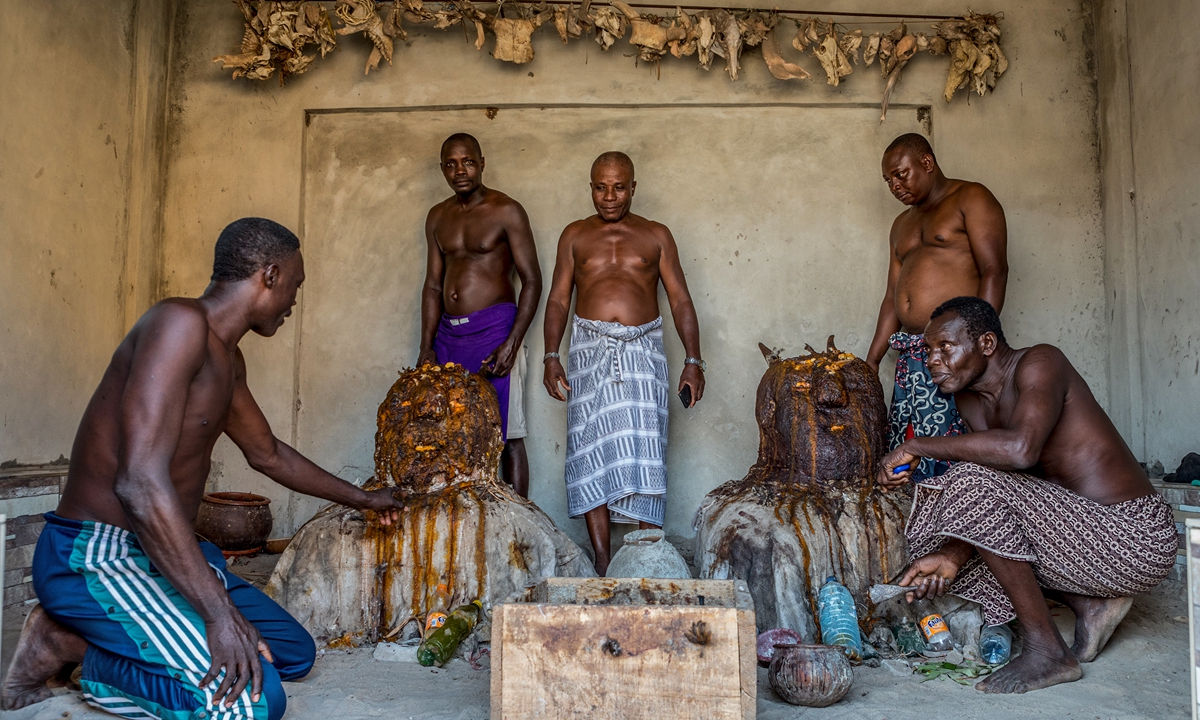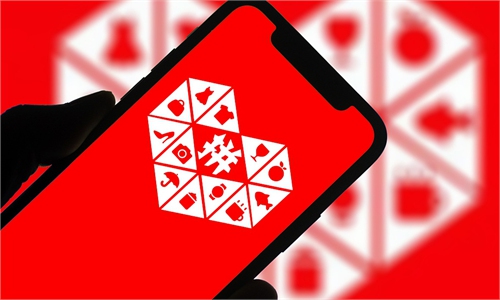ARTS / CULTURE & LEISURE
Virus curbs dampen Benin’s voodoo festival
Tradition disrupted

Vodun dignitaries attend a voodoo ritual in a Zangbeto convent in Guezin, as part of the annual voodoo festival on Sunday in Benin. Photo: AFP
Benin held its annual voodoo festival Sunday without the usual grand processions after authorities of the West African country banned large gatherings because of the coronavirus pandemic.
Voodoo, more often called vodun in the region, originated in the Kingdom of Dahomey, now Benin and neighboring Togo.
With a hierarchy of deities and tribal spirits of nature, the ancestral religion uses fetishes, magical practices and healing remedies, believed to be divine, and revered ancestors are believed to live alongside the living.
The traditional processions staged in villages and cities across the country normally attract large crowds of believers as well as onlookers and tourists.
But this time only small groups of faithful took part in observances mostly held at voodoo convents.
On the beach of Grand-Popo, a coastal village in southwestern Benin, around 50 faithful, all wearing masks and observing social distancing, carried out their traditional sacrifices.
"It is a blessing bestowed on this beach every January 10 and you can't miss the occasion for anything in the world," one believer, Odilus Sogan, told AFP.
"We're a bit disappointed," added Metowanou Guedehoungue, a voodoo official.
"The faithful have been asked to stay home."
In normal times, "voodoo is celebrated with pomp and grandeur," he said.
In the economic capital Cotonou, a dignitary of the sea goddess Mami, Hounnon Zekpon, did not lead the usual procession on the city's Fidjorosse beach.
Dressed in white with a matching mask, Zekpon nevertheless held forth in the courtyard of his home which serves as a convent, with around a dozen believers carrying out sacrifices.
The pandemic has had little impact on the country of around 11 million people, which has officially recorded some 3,300 cases and 44 deaths. The real toll is thought to be greater, however.
While the authorities have balked at imposing lockdowns, they have banned large gatherings in the former French colony.
Sunday's festivities generally respected the rules.
"We don't want to be the ones blamed for COVID-19 infecting our country," said Baba Adeniyi, another voodoo dignitary.
He notes meanwhile that the virus came as no surprise to him.
In November 2019, Le To Fa, a voodoo oracle, "predicted a serious disease for 2020," he said.
"So we made a lot of sacrifices to ward off bad luck and protect the people."
According to the latest available official figures, which date from 2013, practitioners of voodoo account for just 11 percent of Benin's population, against nearly 30 percent Muslim and 25 percent Christian.



